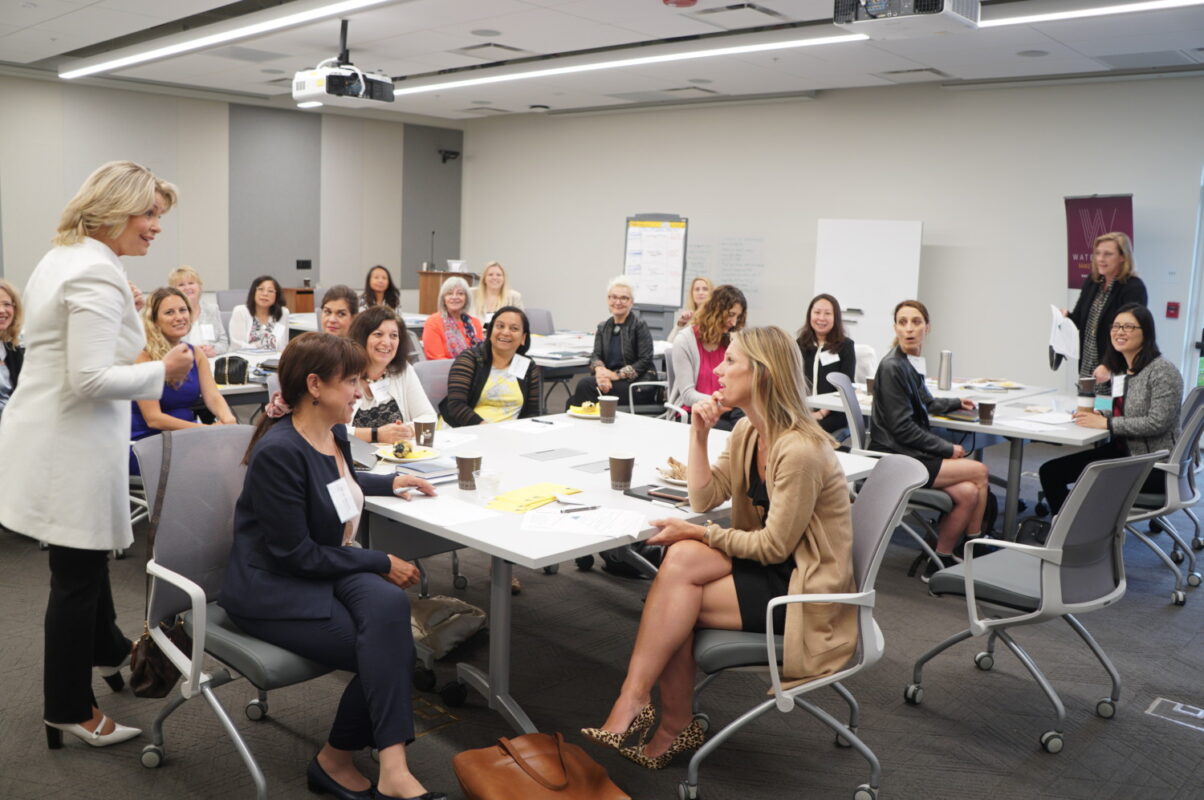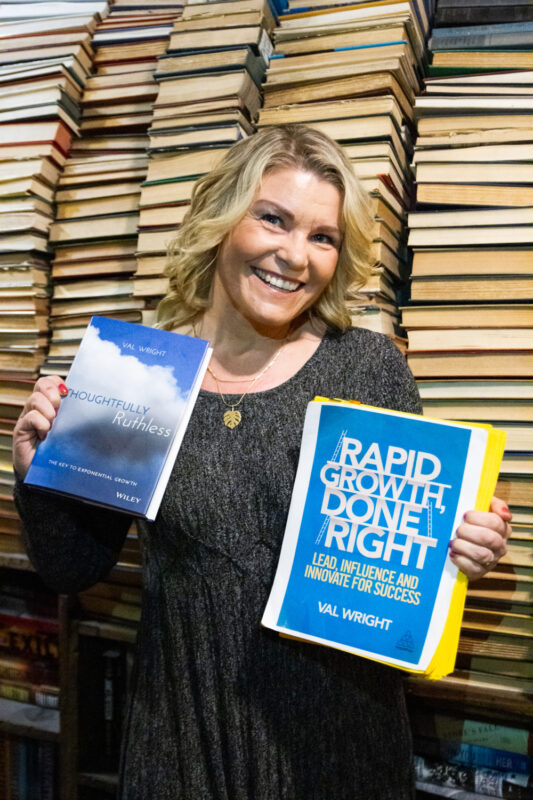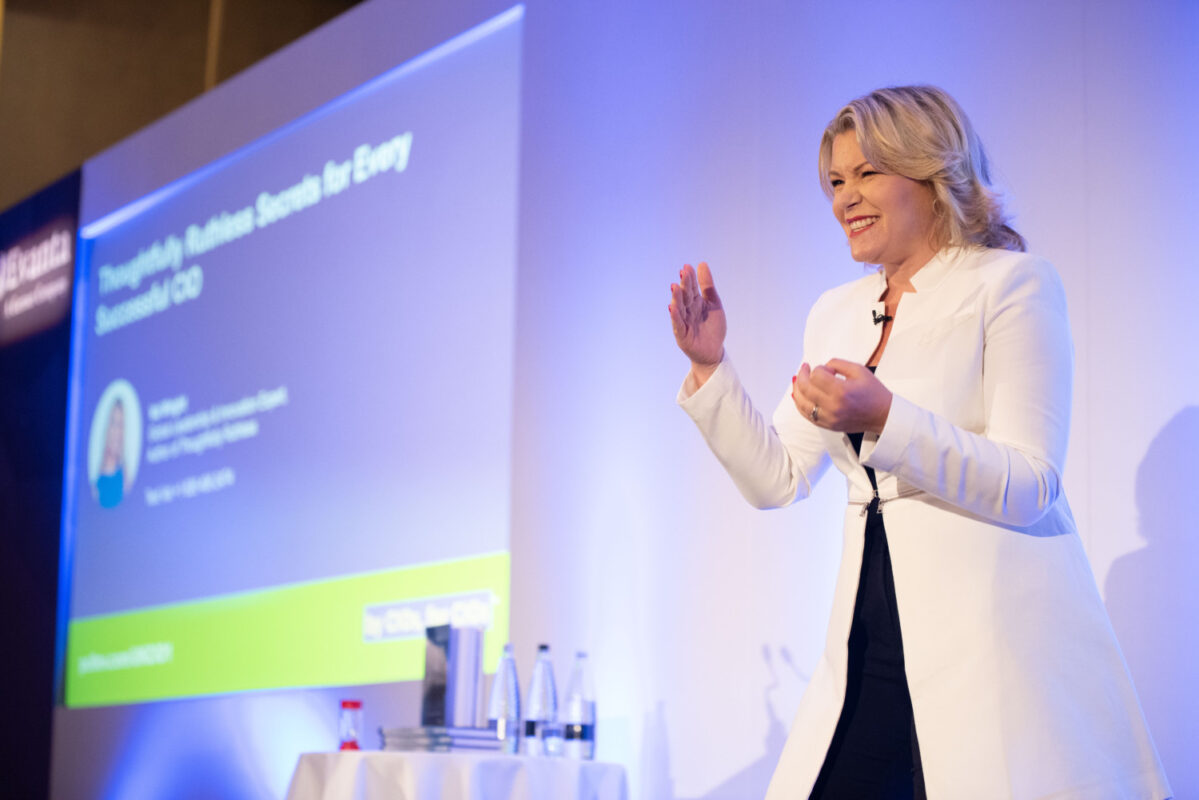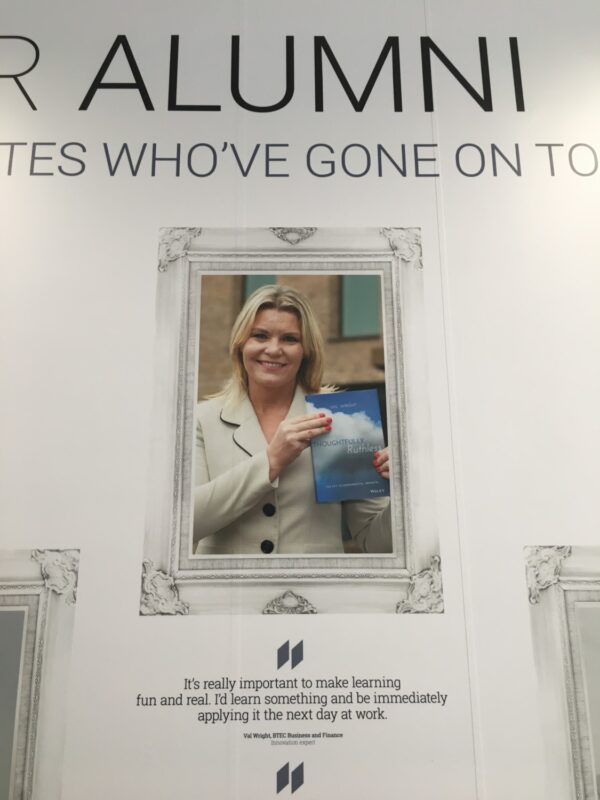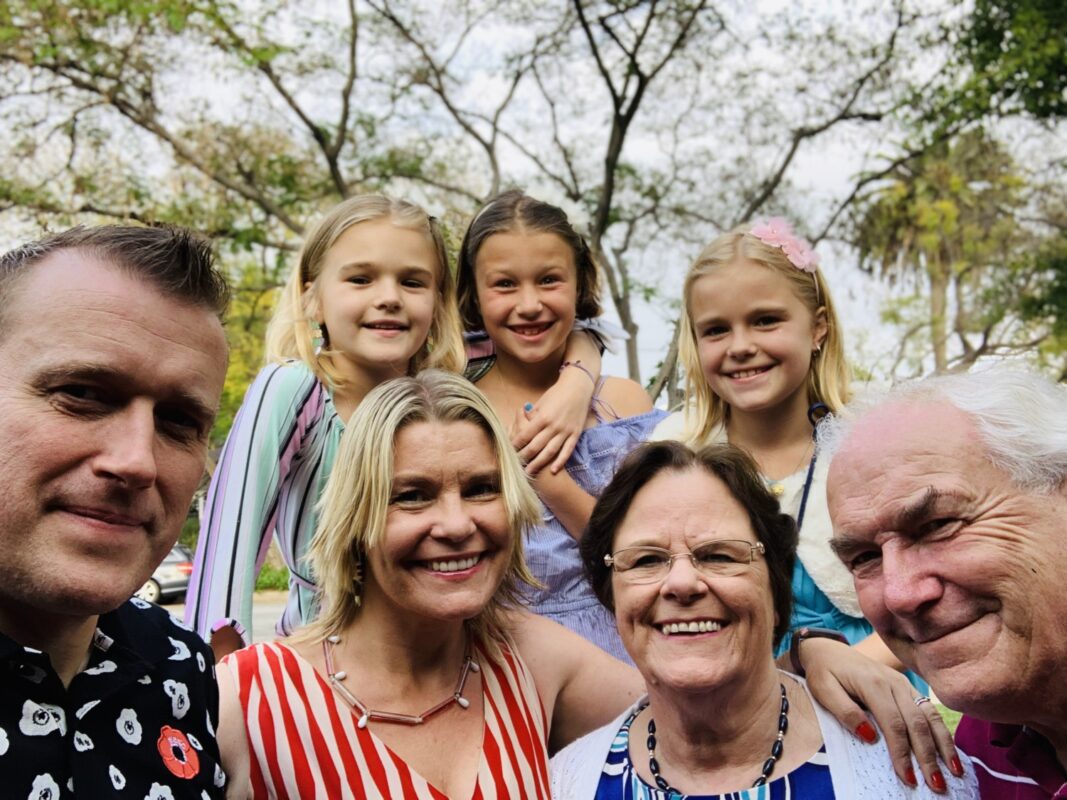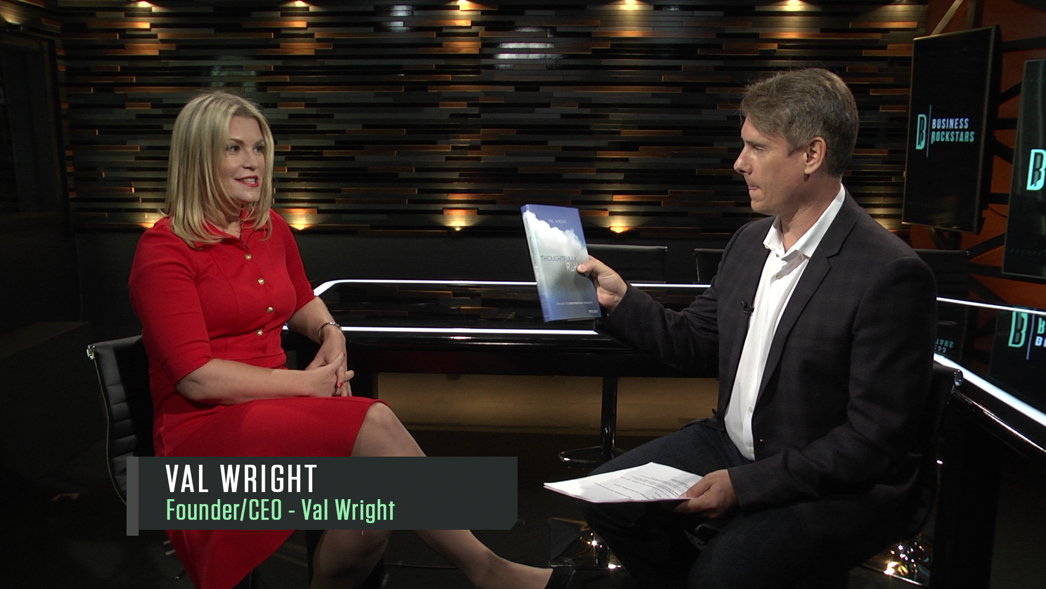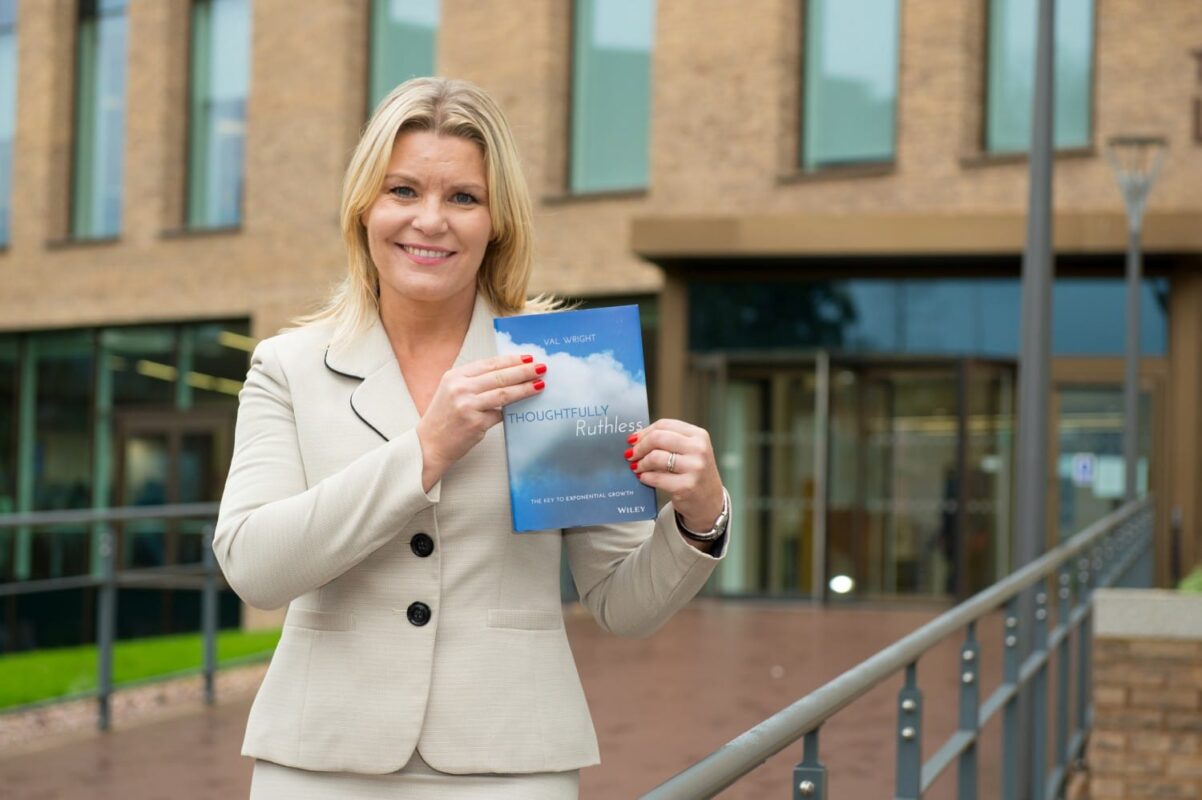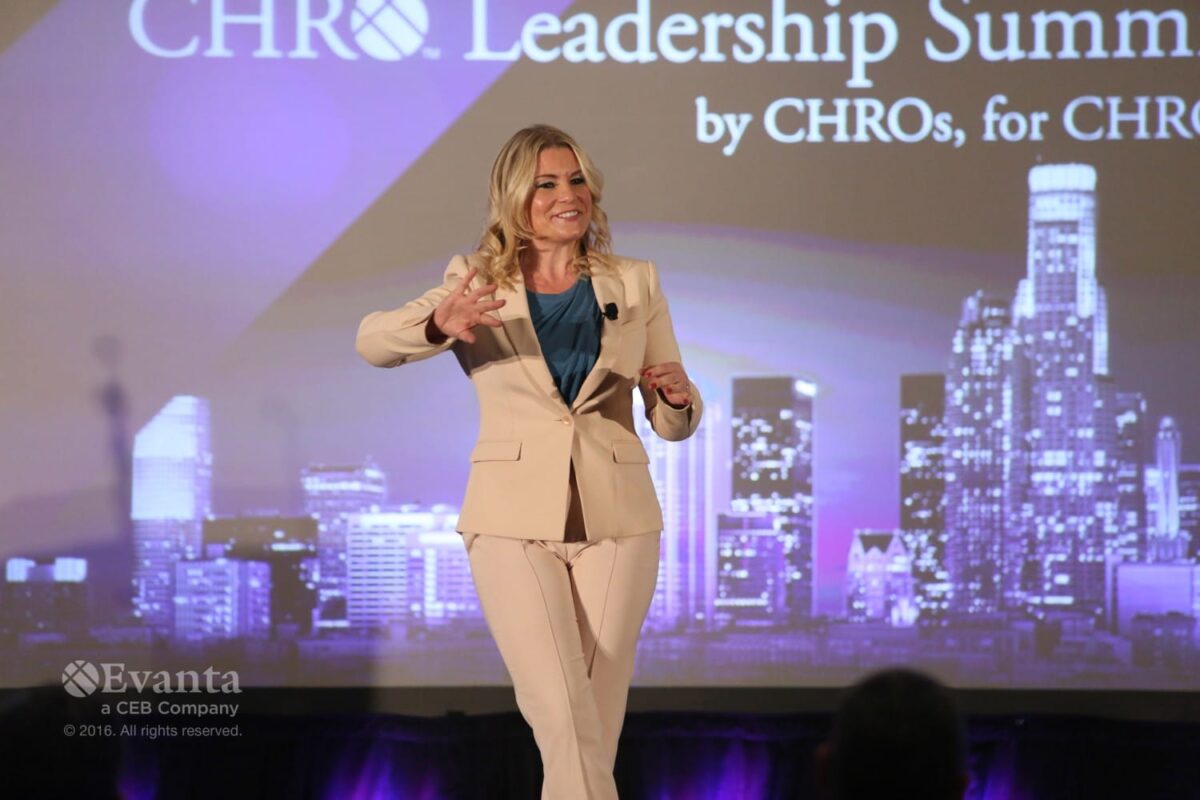Meet Val Wright, Global leadership and innovation expert, author and speaker, she was named as one of the top 50 resources for Chief Operating Officers by ClickSoftware. She is one of only 64 experts inducted into the Million Dollar Consultant® Hall of Fame. The global clients who have requested her help include Starbucks, LinkedIn, Amazon, Microsoft, Financial Times, Seagate, Gartner, and the LA Lakers.
“Executives tell me that my been-there-done-that-got-results experience is what makes me unique”
Who is Val Wright? define yourself
Val Wright is a global innovation and leadership expert, originally from England, now living in Los Angeles. I participated on the small team that created the fastest-selling device of all time, Kinect for Xbox, which won a Guinness Book of World Record, selling over 20 million devices. This contributed to the turnaround of Microsoft’s Entertainment business from a billion-dollar loss to a multimillion-dollar profit machine.
I am an autor, my books include: Thoughtfully Ruthless: The Key to Exponential Growth Wiley, 2016 named UK Amazon Best Selling Time Management Skills book, best business book by Independent Press Awards and NYC Big Book Awards, and best career book by Book Excellence Awards, and Rapid Growth, Done Right Lead, Influence and Innovate for Success Kogan Page, May 2020 named business best seller for Porchlight Books, Kindle US Business Consulting Best Seller, and Amazon Creative Management Best Seller UK CEOs call me “The Growth Magician” and have been relying on my expertise to grow their business innovatively as companies follow the Review, Reset, and Relaunch of their business.
How were you as a kid?
“If Val doesn’t pay more attention in class, she will be destined to become a YTS Hairdresser”.
That is what my history teacher told my parents when I was 12. The ultimate insult, which in England meant you would leave school at 16 and earn a pittance of an apprentice income paid for by the government. That inability to focus I was chastised for; I find out aged 45 is because I have the gift of a neurodiversity brain. I discovered that I have ADHD combined this year which explains why taking formal tests was so tough, why my ability to retain facts, pay attention to the one topic the teacher wants me to at the time they wanted me to was such a challenge.
My stubbornness took over and it meant I had to put in exponentially more effort than my friends, but that is where my hyper-focus benefited me and benefits me now, and that hyper-focus helped me write my first book in four months and my second book in three months. At school, I did run my own company age 15. As part of HSBC’s sponsored Young Enterprise Program, we got to raise money, design, produce, and sell products, including shrunk chip packet key rings which were incredibly popular! I learned more part of this company shrinking chip packets, making wooden jigsaws, and working with my class peers to make a profit than any school class or test.
You have a Bachelor´s degree in Business and Finances at The University of Wolverhampton, why did you choose that course of study?
I had the fortune of studying business and finance part time while on a management training scheme with House of Fraser retail department store group in England. I didn’t want to go to college, because the 1992 recession in England meant my friends were leaving university after 4 years of study and taking minimum wage jobs in local supermarkets. I knew I wanted to be a store manager, I was inspired by my boss at one of my part time jobs at Dorothy Perkins womenswear store, and realized I could get four more years’ experience in the real world while my friends were studying at university, so I sought out a retail management training program.
House of Fraser, then part of the Harrods Group, sponsored my day release from their Management Training Scheme to study Business and Finance at the University of Wolverhampton showing that there are multiple ways to combine business experience with education.
Full time multi-year degrees are overrated. We fail to educate on entrepreneurship and business skills in schools. By working at House of Fraser on their management training scheme and attending day release and night school I was able to combine the best of both worlds, I was running a team of 26 by the time my contemporaries were leaving their university education. I literally would sit in class and learn about the intricacies of profit and loss accounts, then be at work the next day calculating how we could drive store sales efficiencies by improving the sales per square foot and we introduced the first automated staff scheduling system that significantly increased sales across 52 stores.
University of Wolverhampton also featured me in their annual alumni publication with a four-page interview and now I am in their Alumni Wall of Fame along with a judge, a British championship gymnast and many other remarkable leaders. Too often we have a fixed view of what it means to be successful, whether you are hiring a new executive on your team, evaluating the leadership team of a company you are considering acquiring, or passing silent judgement on the person that you have been introduced to. For many years I didn’t want to share that I left school at 18, and some opportunities I lost out on because a company placed a value judgement on me not attending a traditional university. Their loss I now realize.
“Surround yourself with an inner-circle of advisers who you can learn from, who have done what you want to do, who will be truth-tellers, give you genuine praise and tough love in the right mix”
You worked for important companies as BMW, Microsoft, Amazon, Harrods, Xbox, among others, how did you jump from that point to found your own company Val Wright Consulting?
Executives I worked with in my corporate life kept wanting to introduce me to other executives and board members at different companies so I could help them innovate and grow too. Those CEOs and executives helped me see a demand for sharing my expertise beyond the one company I worked at.
I always knew I wanted to run my own business. I remember sitting in a Seattle restaurant when I worked at Xbox, before we had launched the Kinect Camera, when I told two close friends "I will write a book and own my own business by the time I am 40." Then I created a simple plan how I was going to get there. Now, seven years after launching my innovation and leadership consulting business I work with executives to accelerate growth and innovation, speak at conferences, and I have written two books, with a third launching next year.
What does your company make unique in the market?
Business Gurus who have never led a team, or worked in corporate life, or made an acquisition, or had to make tough calls on hiring, firing, investing, launching products, or presenting to boards can only give so much theoretical advice. Executives tell me that my been-there-done-that-got-results (BTDTGR) experience is what makes me unique. My ability to share here’s what the most successful CEOs are focusing on right now, here’s how this worked at Xbox, here’s the mistake we made at Amazon, here’s how we created this Joint Venture for the Human Genome Project, here’s what happened when we acquired this company for $400M, here’s how we turned around the $1B write off at Xbox, here’s how we got the Guinness Book of Record for the fastest selling device of all time with the Kinect Camera. Executives don’t need professors or theoretical advice; they want help that is founded on real results and real experience.
You are a recognized global leadership and innovation expert who is known as growth accelerator by top executives at Fortune 1000 companies including Starbucks, LinkedIn, Amazon, Microsoft, Financial Times, Seagate, Gartner, the LA Lakers, among others. You are a regular contributor on CNBC, BBC News, Fox Business News, Inc. Magazine, Business Insider, Fast Company, Bloomberg, Reuters, LA Times, MSN, and Today. What´s the recipe for your success?
Three ways:
- Surround yourself with an inner-circle of advisers who you can learn from, who have done what you want to do, who will be truth-tellers, give you genuine praise and tough love in the right mix. Successful leaders can outpace their network, if you are the most successful person in a group you will give more than you receive, which is great to be supportive but you need other circles where you are receiving and being guided too.
- Be brilliant at demonstrating your brilliance – you can’t get credit for your achievements if no one knows about them, being a best kept secret is common for those who don’t share stories about their success and impact. It took me years to talk about my work on the Kinect Camera and that it resulted in a Guinness book of record for the fastest selling device of all time. Now I can confidently talk about doubling the market share of a company, a 37% increase in share price from my work with another CEO, and saving 140hours for every employee in a marketing division by implementing Thoughtfully Ruthless strategies
- Become Tri-lingual – the Chief Product Officer of Sonos told me in a testimonial about my unique ability to work across leaders of all stripes, this led me to decode how I do this, create the Trilingual Executive Strategies, and work with companies to create symbiotic relationships across creative, technical and business teams, which unlocks innovation and rapid growth.
You are an author as well your books include: Thoughtfully Ruthless: The Key to Exponential Growth Wiley, 2016 named UK Amazon Best Selling Time Management Skills book, best business book by Independent Press Awards and NYC Big Book Awards, and best career book by the Book Excellence Awards, and Rapid Growth, Done Right Lead, Influence and Innovate for Success Kogan Page, 2020. Tell us more about your new book.
Microsoft once wrote off a billion dollars due to Xbox hardware failures on the heels of Nintendo launching the Wii. Things were not looking good for the game division, but the Microsoft team adjusted swiftly. I was part of the small team that created the Kinect camera for Xbox, which led to a Guinness World Record award for the fastest-selling device of all time.
Transformative leaders are now able to replicate this success with the tools and blunt advice in my new book, Rapid Growth, Done Right: Lead, Influence and Innovate for Success [Kogan Page, May 26, 2020].
How quickly you notice, react, and adjust during rapid change will determine if you suffer the fate of Blackberry or reap the benefits like Amazon or Xbox.
I explain how an inspirational CEO is the pivotal power in any organization. They need to lead and inspire in the right way, creating a team with complementary talents that circle the CEO so that business growth becomes effortless. The leader who influences and innovates successfully will orchestrate an organization that helps everyone dream big but stay grounded, rapidly taking ideas and putting them into action. Using examples from a number of leading corporations, and featuring interviews with C-suite executives at some of the world’s most innovative businesses, Rapid Growth, Done Right is an essential guide to creating products and services that customers will love while delivering consistent growth.
Rapid Growth, Done Right is packed with inspiration and examples from businesses of all sizes, and gives you tools to immediately apply to your business. It will also change the way you design products, develop strategy, communicate, and make decisions so you can create Rapid Growth in the right way, while also revealing:
- The Influence Bullseye: How your power of influence will predict your personal and company success
- Only successful leaders outpace their network: You have to always know people who can hire you and how that group requires intentional focus
- Why growth is stunted when technical, creative, and business teams are not working symbiotically
- Who on your team needs to be fluently “Trilingual”, or able to work across creative, technical, and business teams so you are not lost in translation?
- How to speed up decision making and become nimble by using the 10am – 2pm Test
- Why “because we give a damn” works for a rapidly growing technology company
- The technology might have advanced from maps to apps for your car journeys, but do you truly know the real ETA for your product launches and initiatives during this year of unexpected global events
- Why getting fired or pushed out is just what you need to succeed
“How quickly you notice, react, and adjust during rapid change will determine if you suffer the fate of Blackberry or reap the benefits like Amazon or Xbox”.
What is the reality of your day-to-day?
It varies every day. This past week I was advising leaders in Kuala Lumpur, New Zealand, India, France, Singapore, and Australia. I have eight executives I am currently advising who were hired and joined their companies having never met their new CEO or board and have yet to visit an office or customer in real life so influence via a computer screen requires different skills. I have run board retreats, innovation experiments, and appeared on TV, radio, and podcast interviews, all from my home office while my three daughters are adapting to the life of online learning and we all learn I am the worst substitute teacher ever!
Do you have any particular philosophy that guides your career decisions?
I share these three crucial questions with executives that I advise:
- What is my personal valuation? Just like a stock price your value goes up, your value goes down, and there's a cycle. You actually have two valuations. You have an internal valuation and you have an external valuation. That is what's going to help you decide whether to invest in increasing your valuation internally or if you are valued more externally and it is time to switch companies.
- Is your Thought: Action Ratio, right? Don’t over think career decisions, use an objective evaluation like my Perfect Job North Star that I can send any read that would like a copy, then make a decision and move on.
- Will you regret inaction more than action? I hear more regrets about what you didn’t do vs. what you chose to do. It is far better to try and learn than hold back and not try and regret taking an opportunity. When Microsoft offered me a job in Seattle and I had to make the decision to move me, and my fiancé from England I heard so many stories of others who had turned down an international move and regretted it. I knew what I had to do.
What do you love most about your job as CEO? & what is the most difficult part?
I love hearing CEOs and executives share the results they achieve from our work together whether it is the 37% jump in share price, the Board sharing confidence in a new CEO I am advising, a leader getting the funding they need for their new initiative, or a team sharing how many hours they have saved in time from implementing Thoughtfully Ruthless strategies.
The most difficult part is not becoming the worst boss I have ever had. Being kind to yourself as an entrepreneur takes practice. The gift of my ADHD brain means that my hyper-focus can mean that I can always see new opportunities, new experiences I can create, new ways I can help companies, and I have to force myself to stop, switch off, Peloton, practice yoga, and save my latest ideas for tomorrow.
As an entrepreneur, what is the one thing you do over and over and recommend everyone else does?
I regularly re-read my Thoughtfully Ruthless book to make sure I am focusing my time, energy, and resources on the right spot. How your business is today isn’t how it was last month or will be next quarter. I apply what I teach in my Review, Reset, Relaunch approach to adapting and growing my business.
What is one strategy that has helped you grow your business?
Having a business advisor who I hired to help me grow my business. I couldn’t have created the results I did without having someone in my ear giving me feedback, encouragement, and tough love right when I needed it.
You work with Executive teams and Boards to accelerate growth and innovation by helping leaders become more Thoughtfully Ruthless, what are the don and don'ts in the female leadership?
- Focus on business results
- Concisely communicate.
- Match the mannerisms of your male counterparts
- Pay attention to the music of your voice
- Whether you like it or not, appearance matters
- Be brilliant at demonstrating your brilliance
What do you like to do in your spare time?
Living in Los Angeles I get to enjoy the beauty of the beach and pools in the summer and the ski slopes in the winter. We enjoy family bike rides and traveling the world. I am addicted to my Peloton bike, and I love listening to Jazz, classical music and live DJs.
“Being kind to yourself as an entrepreneur takes practice. The gift of my ADHD brain means that my hyper-focus can mean that I can always see new opportunities, new experiences I can create, new ways I can help companies”
Many authors say women can and must strive to have everything – a shining career, blossoming family life and a perfectly balanced lifestyle all at once, others point out that– then women are placing unrealistic expectations on themselves if they believe they can have it all, you are married and have 3 daughters, so according to your experience, what do you think about these statements?
First, if only people would talk a little more honestly about their lives there wouldn’t be this Instagram worthy beautiful picture of the perfect image of the perfect life. You make choices. Your choices. Based on what is important to you and your family. I made a choice to quit corporate life and become an entrepreneur because I wanted to choose when I worked, who I worked with, and have the option to take summers off to be with my family while continuing to support my clients in innovative ways. You have to first ask yourself honestly, what do you really want your whole life to look like and then go and make that happen.
What are your plans for the future?
My third book The CEO Rosetta Stone: Powerful Language from the World’s Most Successful CEOs is just about to be announced. While we are living through these unusual times, I am practicing what I teach: innovating through the unexpected. I am leading more virtual innovation experiences, strategy discussions, leadership performance accelerator sessions and executive book clubs. I have also recently launched The Wright CEO Exchange, a private community for CEOs to exchange ideas, exchange stories, and exchange advice.
There is still the glass ceiling for women in the world: Fewer opportunities, jobs underpaid just for that fact of being a woman, etc. Have you experimented with the glass ceiling? if yes, what are the biggest challenges you have faced and how have you overcome them?
Earlier in my career my rise was so fast I didn’t feel any glass ceiling and was likely completely oblivious of the term or the concept back in the 90’s. I was leading a team of ten age 19 when I was working in department store retail in England so my mental baggage was “I am too young!” so I donned an old-before-my-time Betty Barclay designer suit, wore glasses when my eyes only needed a slight adjustment because it made me look older so I felt older and more confident.
As I progressed through my career, I had many supporters who would tap me on the shoulder and say “now go do this job” and many of my promotions came from people seeing the impact I had on revenue, profit, and innovative breakthroughs. I am not convinced there is a glass ceiling that is deliberately put in place. It is like a door that you need to knock on, sometimes loudly, and one where you tell people (your boss) that you are willing to walk through that door but this is your price of entry for the value they will receive if you go with them to the other side. What I mean by that is how you go after the job that you might think is out of your reach, and how you negotiate the salary that you absolutely deserve.
KEY: What tips, can you give to young girls who want to become an entrepreneur like you?
Experiment! Launch a business this summer, decide on a product or service, do some research, create it, market it, launch it and learn. www.bizzygirls.com has brilliant virtual summer camps where they teach young girls of all ages how to become an entrepreneur. My daughters took part last year and now one has her own home-made dog treats business.
“You have to first ask yourself honestly, what do you really want your whole life to look like and then go and make that happen”
I think in your position, many people may have the wrong idea of who you are (personally) and what do you (professionally) with this idea in mind, what is being Val and what´s not?
Everyone thinks I am on the road all of the time because I amplify on my social channels when I am at events, speaking at conferences, running retreats for companies. But the reality is I take most of the summer off, I am very deliberate about which clients I say yes to because my daughters at ages 10,10 and 12 will soon be teenagers and off to college so I want to spend as much time at home with them before they become independent.
Who is the woman you admire most and why?
Imagine someone who has set up their own foundation, is an advocate for STEAM education for young girls, has her own baking company, is a force of nature online, has a subscription kids cooking kit company, has appeared on Dr Phil and other TV shows. and is a teacher. Now what if I told you she was 14. That is Chef Simone Bridges who I have the fortune of knowing. She is truly phenomenal. You can check out her work here: https://www.goddessfoodfactory.com
Name: Val Wright
Sector: Consulting
Company: Val Wright Consulting
Designation: President and founder
Country: USA
Social media:
https://www.valwrightconsulting.com/
https://www.linkedin.com/in/valwright/
http://twitter.com/valerwright
http://instagram.com/verwright

